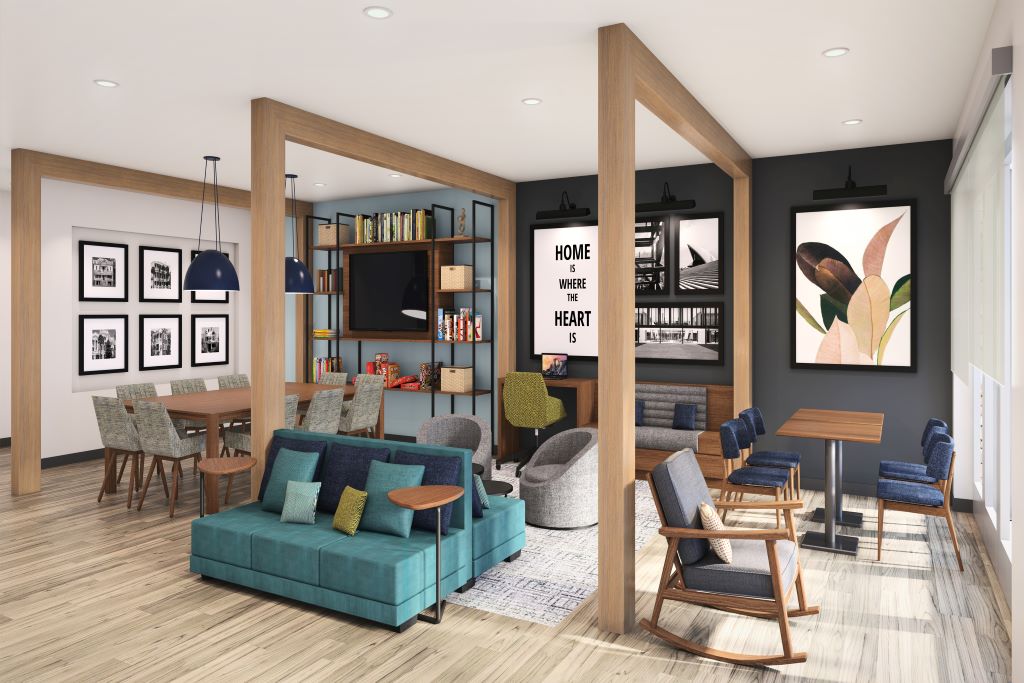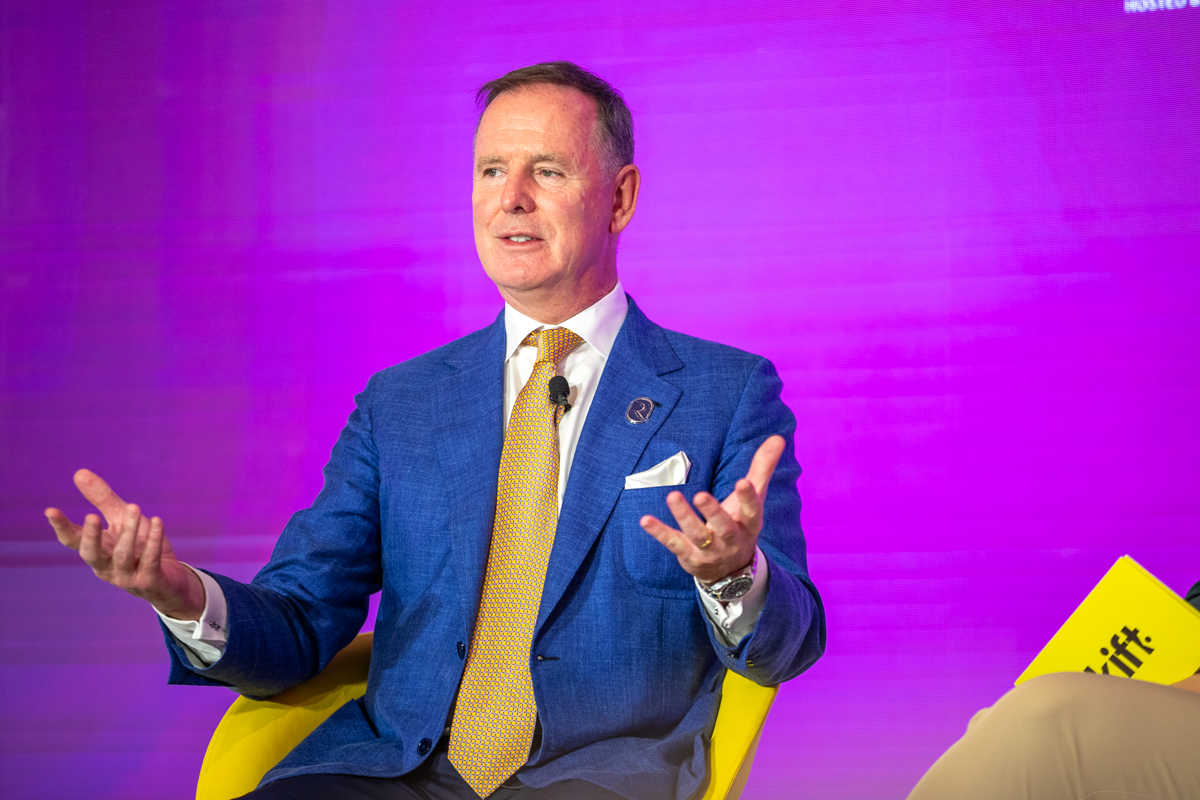5 Takeaways From the Year's Largest Hotel Industry Conference

Skift Take
Every January, about 3,000 hotel executives, owners, developers, and management companies gather in Los Angeles to make pronouncements about the health of the industry and their goals for the year.
While hotel companies always say that they are optimistic about the future—they’re making more deals, creating new brands, expanding existing brands—the numbers tell a murkier story.
Industry research firm STR and Tourism Economics released its first forecast of 2020 this week at the Americas Lodging Investment Summit (ALIS).
For the first time since 2009, the U.S. hotel industry is likely to have flat growth in revenue per available room, or RevPAR, a key metric.
STR revised its predictions from its previous forecast in November, when it predicted increases in RevPar of 0.5 percent in 2020 and 0.7 percent in 2021. Now, it is saying there will be no growth this year and 0.5 percent growth in 2021.
STR president Amanda Hite said 2019 was the worst year since the recession in terms of RevPar growth, coming in at 0.9 percent after nine years of increases of 3 percent or higher.
The good news, she said, is that demand is still high so hotels are selling rooms. Looking at the situation relatively, RevPar growth may be slowing but that’s on top of increases over the last few years that were at record high levels.
Despite the tepid outlook for 2020, hotel executives and developers said this week that they will continue to forge ahead with plans to start new brands and expand existing ones.
Here are five takeaways from the 2020 ALIS conference.
Another Brand is Born
Hilton stole the thunder from some of its competitors by announcing its new lifestyle brand Tempo by Hilton at a splashy affair in New York City on Jan. 16. Hilton, as usual, was present in full force at ALIS this year showing off Tempo. But its competitors were not to be outdone.
Choice Hotels International introduced Everhome Suites, an all-new construction midscale extended stay brand with customizable, apartment-style accommodations.
The company on Tuesday broke ground on the first Everhome Suites in Corona, California. It has agreements for 13 hotels in Austin and Los Angeles. The first Everhome Suites will open in 2021.
CEO Patrick Pacious said Choice has figured out the extended stay business. It has more than 400 hotels across its existing WoodSpring Suites, MainStay Suites and Suburban Extended Stay.
Pacious insists there is demand for another extended stay brand, saying that 20 percent of hotel stays last year were for seven days or more but that only about 9 percent of existing supply was in extended stay.
“The customer at this segment we believe has been under-served,” Pacious said. “This brand is targeted at the heart of midscale, so we’re looking at the value-conscious customer who is really looking at apartment-style accommodations … so that when they get into the space they can adapt it to the way they want to live their life and the way they want to work on the road. The idea is for them to continue their routines while on the road.”
It’s a familiar refrain sounded by Hilton CEO Chris Nassetta when introducing Tempo, which is not an extended stay brand but is designed to help customers maintain their wellness on the road.
The Choice team said they are offering a more rounded experience.
Everhome Suites will have studios and one-bedroom apartment-style layouts. All rooms will have defined spaces.
“You don’t want to work and play in the same space when you are there for that amount of time,” said Anna Scozzafava, vice president of operations for brand strategy and operation for extended stay for Choice.
There will be a rolling variable heights workstation, a full-size closet, bathrooms with ample counter space, and fully-equipped kitchens. Public spaces will have multi-purpose lobbies. There will be fitness centers, business centers, libraries, laundry facilities, and in many cases, a swimming pool.
The average daily rate will likely be about $85.
“It is probably the first brand to be launched in the heart of midscale extended stay in probably over a decade,” Chief Development Officer David Pepper said. “Most of the hotels in this segment probably average about 15 years old of the age of the property. What we’re trying to do is bring new life and breathe new life into this very attractive segment."
Other new brands will likely pop up this year, but some executives said they think there will be a slowdown. Nassetta told Skift on Jan. 16 that Hilton is done with introducing new brands for a while, a proclamation that his deputies reiterated this week.
Where Have the Independents Gone?
Soft brands are a way for independent hotels to take advantage of a large hotel companies’ marketing, reservations and distribution systems, technology, and loyalty programs.
Many companies have multiple soft brands. Hilton, for instance, has Curio, Tapestry and LXR Hotels and Resorts, a luxury collection.
Best Western Hotels and Resorts already has a few soft brands, including BW Signature Collection.
BWH Hotel Group, parent company of Best Western, announced a new collection of hotels as part of its acquisition last year of WorldHotels, an upper upscale and luxury hotel collection.
WorldHotels Crafted Collection is a collection within a collection. Each hotel will have a TripAdvisor rating of 4.5 or above. Each will have its own design and services that reflect its location.
“A lot of independents want to have a platform but don’t want to lose their essence,” WorldHotels CEO Kristin Intress said.
Hotels will have to go through a rigorous inspection process to get into and stay in the collection, she said. So far there are 25 hotels included.
Expect more soft brands and collections to be created in the future as it becomes more and more difficult to compete with what large companies like Marriott International have to offer, particularly their loyalty programs.
Deals, Deals and More Deals
Despite the not so shiny outlook for the year, hotel companies are continuing to expand their brands.
Canopy by Hilton, a lifestyle brand, will open 20 hotels this year, more than doubling its size. It now has 12 properties around the world. The new hotels will open in Brazil, France, Mexico, the United Arab Emirates, and the United Kingdom. A property is still scheduled for China in Hangzhou-West Lake, despite the coronavirus outbreak in Wuhan.
The U.S. will get Canopy hotels in cities such as Austin, Baltimore and Dallas.
Gary Steffen, Hilton's global head of Canopy, said that he doesn’t see a slowdown in the number of developers wanting to build hotels.
“Owners want to develop these newer brands,” Steffen said. “I still think there’s a sentiment of positivity out there. It may not be that robust nature we felt three or four years ago, but just talking to owners, I’ve had at least 10 good conversations."
The luxury segment is also moving forward with rigor. Luxury hotel company Loews Hotels & Company, for instance, is set to open three hotels within the next 70 days. They are located in St. Louis, Orlando, and Kansas City. The three openings will bring the number of Loews Hotels to 29.
The company also got approval in December for a $550 million hotel in Arlington, Texas, with 888 rooms, more than twice the size of the Live! by Loews hotel that opened there last year. It will have a 150,000 square foot convention center.
The hotel is part of the Texas Live! complex nestled between AT&T Stadium and Globe Life Park.
“We think Arlington, Texas, can be one of the next great meetings and events destinations in the U.S.,” Loews Chief Commercial and Development Officer Alex Tisch said. “It’s 15 minutes from DFW (airport), which is closer than both Dallas and Fort Worth, it’s got a great year-round climate, lots of available labor, and with the demand generation of the two ball parks plus the medal of honor museum just announced, we think there is a really great opportunity there.”
Loews has also signed a deal for a 242-room property with 15,000 square feet of meeting space in Coral Gables, Florida, which Tisch said is in need of luxury properties.
STR and Tourism Economics said that the luxury hotel market is expected to have the highest average daily rate growth of all segments this year at 1.3 percent.
Hotels Are Susceptible
Hotel companies are always going to keep trying to grow but they will face some challenges this year.
“The overall economy has started to slow down,” STR's Hite said. “We’ve seen the GDP growth in the last half of 2019 start to slow down.”
The other issue: There are so many new hotels out there. “We have supply growth outpacing demand but demand growth is still positive and that’s the number of rooms sold,” Hite said.
Hoteliers have not been able to raise room rates as a result, and that will affect their profit margins.
The one area that seems to be looking bright is group meetings. Hoteliers aren’t raising room rates but they are seeing an uptick in food and beverage revenue, Hite said.
The coronavirus outbreak in China, however, is wreaking havoc for hotel companies, mostly in Asia. Hotels have closed down in the Wuhan area. Major hotel companies such as Marriott, Hyatt and Hilton are waiving change fees in China or for anyone scheduled to travel from China to other countries.
Airlines are canceling flights. United Airlines, for instance, suspended flights to China from Feb. 1 to Feb. 8.
“The impact to the U.S., certainly a drop in GDP in China, would affect our overall economy,” Hite said.
Hotels that have benefited from the number of Chinese travelers who have spent a lot of money in the U.S. will probably be affected by the cancellation of flights to gateways cities such as New York and San Francisco.
“What will that do to the rates and occupancies?” Hite said. “Coronavirus was not something we knew of three weeks ago when we sat down to do our forecast. It wasn’t anything that people were talking about.”
Short-term rentals, again
As usual, the topic of Airbnb and short-term rentals could not be avoided.
A new twist this year is how the traditional and short-term rental industries have gotten so intertwined that short-term rental companies Domio and Sonder were among the sponsors of the conference.
Traditional hotel companies such as Marriott have even gotten into the homesharing business by launching Homes & Villas by Marriott International. Since April, it has reached about 5,000 listings. The company has 7,000 hotels worldwide.
The American Hotel and Lodging Association continues to lobby for such companies to follow the same rules that traditional hotels do, paying the same taxes and abiding by the same safety regulations.
In years past, there was more negativity towards homesharing businesses at the ALIS conference. This year, hoteliers seemed a bit more resigned.
“We believe this is a different kind of customer looking for a different kind of stay,” Hilton’s Steffen said. “We don’t think it’s bad for the industry. It’s bringing in people who want to travel.”




